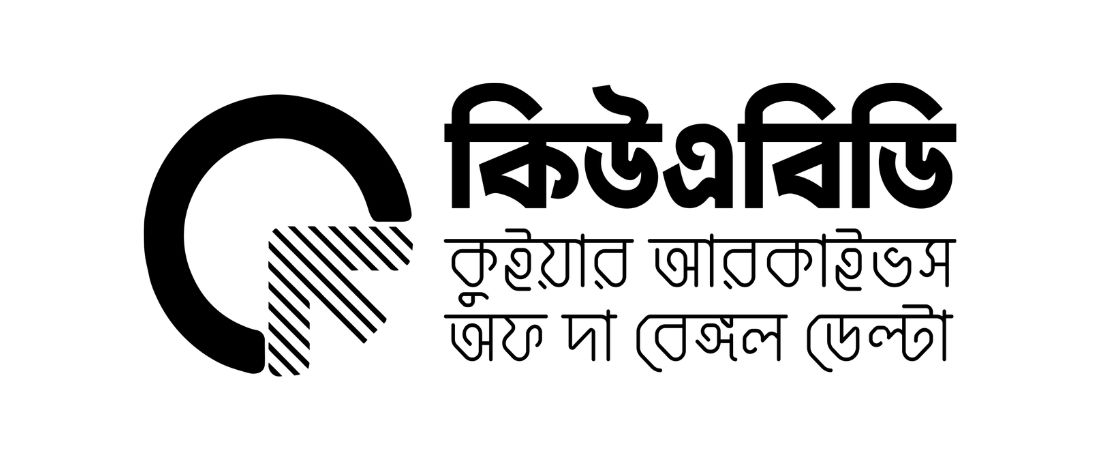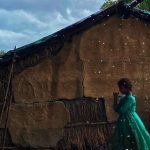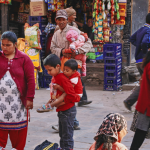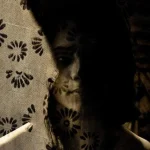Nested within our Social Justice Lab, iProbono’s Accelerate programme incubates early-stage social justice ventures driven by deep purpose and innovative thinking. Here Supriya Roychoudhury, iProbono’s Research and Impact Director, speaks to Accelerate’s inaugural awardees, co-founders of the Queer Archives of the Bengal Delta (QABD), Rasel Ahmed and Efadul Huq, to find out more about their project and plans for the future (This interview has been edited for length and clarity).
Supriya Roychoudhury (SR): Let me begin by saying how thrilled we are here at iProbono to be supporting your path breaking new venture, the Queer Archives of Bengal Delta. Before we dive into the subject of how the QABD came to be, perhaps you could both introduce yourselves to our audience.
Rasel Ahmed (RA): My name is Rasel Ahmed. I live in Columbus, Ohio. I am an Assistant Professor at The Ohio State University. I teach non-fiction filmmaking here. I am a filmmaker and a community-based activist and one of the co-founders of the QABD.
Efadul Huq (EH): I am Efadul Huq, I go by Efad. I live in Northampton, Massachusetts at the moment. I am a faculty of Environmental Science and Policy at Smith College, also one of the co-founders of QABD with Rasel. I am an urban planner, community-based archivist, and writer.
SR: Thank you. Turning now to the QABD, could you walk us through the motivation to set up this archive? Often the need to establish an oral history of any kind is a direct response to an urgent political moment or crisis. What is the QABD responding to here? And what is the change you would like to see it bring into the world?
Rasel:. We have been thinking about the value of archiving, the value of preservation, the value of memory, for the last five years or so. This has been an ongoing conversation between me, Efad and many other people in Bangladesh, particularly within the queer community. Our memories are so vulnerable to erasure. When the South Asian American Digital Archive put out a call to set up an oral history project documenting the lives and histories of the South Asian queer community, we thought it would be an appropriate anchor for our own initiative – the QABD – which we had already fleshed out by then and which encompasses more than just oral histories. Efad, perhaps you could elaborate on this a bit more and also speak to the impact we are trying to make.
Efad: That’s a useful clarification. Documenting the oral history of the community is a key element of the QABD, but it does other things as well. I would say that we engage in three types of work. Our archiving work involves making oral histories; and that is one method of archiving. But we’re also interested in collecting digital material and creating a repository of it. Our political analysis work involves writing and publishing articles and commentary linked to the archives. And finally, we also seek to activate the archive through various outreach activities that involve organising conversations, exhibits, webinars, and discussions.
Going back to the question of what the QABD is responding to, I think in some senses the act of archiving is a direct response to our individual lived experiences, our journey of activism and organising in Bangladesh, and our lived experiences as queer migrants when we relocated to the US. In Bangladesh, we were organising to tackle severe forms of marginalisation within and outside of the family as well as criminalisation by the police and the state. When Rasel and I were in Bangladesh, we noticed that we were deleting our own photographs and texts, basically all sorts of memories. We were deleting ourselves. We were having a conversation about this one day – just reflecting on our lives as friends, as queer kin, really – and the question that struck us was: what were we doing about our self-erasure?
This is a very fundamental kind of injustice: that our history is being taken away from us and we are being forced to separate ourselves from our history and memories. This was the root of our motivation to set up this archive. To be able to collect, preserve and create a community-owned archive that preserves our memories in a way that is true to our lives and experiences. We notice that our experiences were and are being talked about and framed by straight academics and their approach has been disconnected from community work. It did not really understand the nuances of our experiences and came with a saviour complex. Our stories were either being told by others in their own way or were simply being erased. So that, I think, was the moment we realised we needed to create a space for this archive, to create community ownership over our memories. We needed to start doing this ourselves.
RA: To add to that, there are so many people who scrutinise us, who want to study us, who make us feel like we are guinea pigs. I am not discouraging researchers, but this kind of disconnected research can result in a further erasure of our memories or a ‘crisis of memory’, as Efad put it so nicely. People who are not a part of the community come in to ask about our experiences, they write about it, and then this becomes our ‘history’. This is fundamentally wrong. The power gap is, if you think about it, so unbelievable. This kind of research and work and the power held by the producers of this knowledge, this ‘history’: our archive is a direct response to this, to go back to the question you asked at the beginning: what is the political contingency to which we are responding.
SR: I’d like to turn to something that you’ve both spoken about on previous occasions: the politics of visibility. On the one hand, documenting is about making visible the stories of an underrepresented community and resisting the erasure of their history. That is of course an act of empowerment. And yet we know that heightened visibility often goes hand in hand with great personal risk; you yourselves know this intimately. I’m curious about how you plan to balance these two almost competing principles – of visualisation and self-preservation – within the context of your archiving work.
RA: I think there is a need for visibility, perhaps, but where is this need coming from? Who is telling us we need to be visible or invisible? So this is also a question. Yes, there is this community which is extremely marginalised and vulnerable and is being erased. But at the same time how do we become visible? What precedents do we have? Most of the time, visibility in our context seems to be modelled on a Western prototype where we are told we need to do rallies, or dress a certain way, present ourselves in a particular style. I feel this prototype of visibility needs to be questioned as well. We do need to be visible – but how do we become visible? How do we decolonise visibility? We need to think about this.
EH: I agree, particularly in the context of Bangladesh, the idea of visibility, and the model of visibility is coming from the Global North. But in our work, in our thinking, we don’t think about visibility and invisibility as being oppositional, rather we see it as a gradient. It is a continuum that needs us to reflect on questions like: where are you being visible, how are you being visible, what are you doing with that visibility, is that visibility being used as a strategic tool? It makes me think, despite all these attempts at visibility, there has been no real attempt to document or track and make visible the patterns of state and third-party violence against the queer community in Bangladesh – other than the one incident of Xulhaz and Tonoy being killed. But there are many other incidents of police violence that are yet to be made visible. There is so much attention given to Pride as an act of visibility. So why a pride event but not an archive that tracks and makes visible the violence that we are facing? The other question around visibility which we think about quite deeply is to do with history. As a community, we don’t have a shared history. We easily forget our past experiences. One of the goals of the QABD is to make our own histories visible to ourselves first. This is important visibility work to do because our histories are becoming invisible to ourselves. We’re interested in how our memories can contribute to the next generation of queer organising. So we are thinking about visibility but not in the dominant kind of way.
SR: To your point about visibilising queer histories, I wondered if you could walk us through your process. How do you go about collating stories from the community? And what are some of the ethical considerations you need to take into account when you assemble a community archive like this?
EH: Whether it is an oral history or a personal collection of digitised items (including photographs, audio), we are working with sensitive material. Each memory or record goes through a lot of scrutiny. If it is an audio item, we listen to it multiple times; there is a back and forth process. It actually takes us several months to develop each of the oral histories. A personal collection takes about 6-8 months to develop. So even, for example, 20 odd items, we have multiple meetings with the community person and decide what memories will be shared. In terms of access and visibility, we have a slightly nuanced approach. Often, with certain kinds of public archives everything becomes accessible and transparent for research purposes. We want to complicate the question of access and visibility. We want to ask: what does the person donating to the archive want to make accessible and to whom? What is their intention? We really want to be thoughtful about what we make public. When we build a personal collection we discuss each record with our donor and they decide the degree and level of access. They may say, for instance, that the item will only be accessible to community members, or it will be stored in the dark archives and be made accessible only 20 years later. Of course, this introduces a whole new dimension to our preservation plans in terms of how we create a lasting infrastructure. But we are thinking through issues of access and visibility in this nuanced way. We’re also archiving materials being produced by the state and media in the form of reports, publications, newspaper clippings and so on – these we ensure are accessible to more people.
SR: As I understand it, this is an archive intended to document the lived experiences and histories of both the queer community in Bangladesh as well as the Bangladeshi queer community in the US. How is the queer experience complicated by other identity markers such as class, caste, religion, gender or race? How do you plan to explore the issue of intersectionality through your archive?
RA: We definitely do not see queer issues as a separate and isolated issue. Everything is interconnected, all of these identities. I am an asylum seeker, I live in the US, I am a Muslim-born person. We all have these hyphenated identities. And I think it is important we understand the complexities of our intersectionality. So whenever we are talking about oppression, whenever we are trying to understand our differences, we consider the different kinds of marginalisation the queer community experiences. There is a tendency to think that the oppression is coming from one side but that is almost never the case. Through this archiving work, we are trying to understand and uncover some of these complexities – who we are as migrants, as queer individuals, as Muslims, as refugees, as participants of an exchange program. How do our different identities interact with each other? How do they create different effects? I think it is really important for QABD, for us, and also beyond QABD, to understand that anything we do is not just sitting in one space.
EH: To add to that, we also don’t take these intersectional identities to be pre-given. We are engaging in a kind of politics, there is a struggle here; of crafting and finding, reaching new positions and new places. Things that oppress us are sometimes also the things that we are manoeuvring and using to our advantage. So there is that back-and-forth. What is important is to build solidarity across multiple marginalised communities and groups. But we also want to have a historically sensitive basis and understanding of where we are coming from. There are other archives of queer migrants from other countries and other regions, as well as archives of queer people in the Global North, and as we do this work and build this archive we are beginning to see resonances and connections. It is our story, yes, but it is also a bigger story. I wanted to highlight that.
SR: We’re excited to be working with you on the law project. Could you unpack this for our audience? What other upcoming projects can we look forward to?
EH: The law project is about collecting court cases related to discrimination and violence against the queer community in Bangladesh. To our knowledge, there is currently no such public documentation in Bangladesh. We are also developing a website. As a community archive, this kind of infrastructure is crucial for us. We’ve received generous support to develop this website from individual donors, as well as iProbono, which has been amazing. Another project in the pipeline involves creating a virtual mapping of the physical space where Roopban Magazine was written and published. That space isn’t available to us anymore of course but through this digital space we want to create a new frontier of access. We have also been thinking about a queer ecology project. Here we are thinking through what do riverscapes, plants, parks, water, air, pets and wild animals mean for Bangladeshi queers. We want to co-create archival collections that get at queer community’s relationships with nature.
RA: You mentioned storytelling a few times, Supriya. As storytellers ourselves, this is an important lens for us. I’m a filmmaker, Efad is a poet. We’re interested in archiving as an engaged process. We want to activate the archive, as we mentioned earlier, by organising exhibitions, making films, or other creative interactive projects. This is a community-oriented work, and it should be integrated within the community conversation. Since our identities are intersectional and so much of what we do is interconnected, we’re very open to working collaboratively.
SR: For our audience who may want to learn more about the Bangladeshi queer experience, could you recommend any seminal novels, poetry, films or performances? Many of these stories have yet to come into the light – and your archive will make a significant contribution here – but I’m wondering if there are creative works that already exist in some shape or form which you would like to flag?
RA: It’s really us who are pushing forward this need to generate our own literature. I was co-founder of Roopbaan Magazine which, as you know, was targeted in 2016 by Al-Qaeda affiliated terrorists. We were only able to publish a couple of issues of the magazine before we were forced to close it down. There was a poetry book called Roopongti which was published by Roopban in 2015. When Xulhaz was murdered he, alongside a few others, had been working on a book of letters collected from the queer community. It was unfinished. In 2018, some of us picked it up again and managed to complete it. It is called Iti, Roopbaan.
EH: There’s also the comic book, Dhee. I know you’re being humble, Rasel, and you don’t want to recommend things produced by you, but it’s a lovely comic. There’s also Shomarur, a short story collection, and Kobitanama, a poetry collection – both were published by Mondro, another queer-led organisation that we collaborate with in Bangladesh. I don’t know how well circulated they are or if they would be available publicly. There is a strong underground publication movement among the queer community in Bangladesh.
SR: Thanks so much for your time today. And we are really looking forward to working with you to take the archive to the next phase of its journey.
Supriya Roychoudhury, iProbono’s Research and Impact Director.







